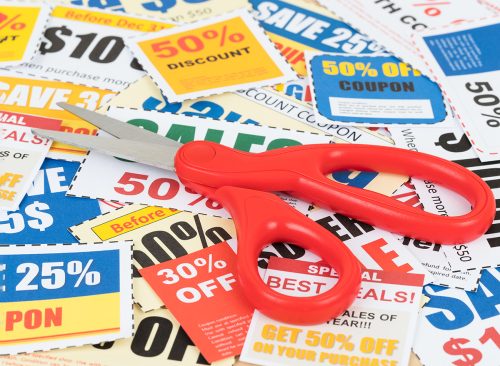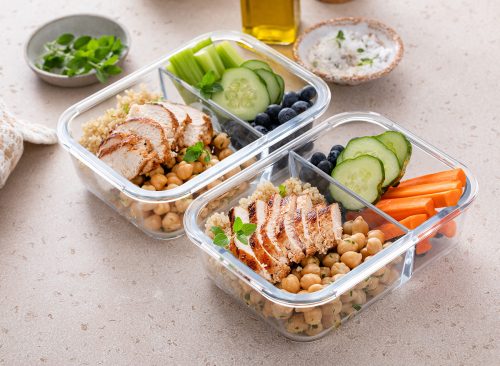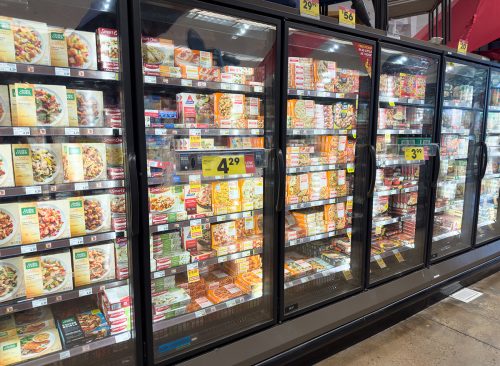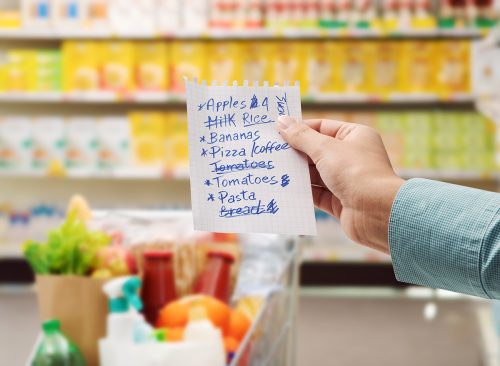7 Things You Should Never Do When Shopping for Groceries, Say Nutritionists
Don’t go hungry... and other tips.

We all know shopping for food when you’re hungry is generally a bad idea—but what else can derail a perfectly ordinary trip to the grocery store? “It’s hard to succeed without a plan,” wellness dietician Lindsey Wohlford tells MD Anderson. “If you can make a grocery list once, it will save it for you to make return trips even simpler.” Here are 7 things you should never do when shopping for groceries, according to nutritionists.

Always read the labels of the products you buy. “A simple rule of thumb for label reading is to scan the ingredient list and try to choose foods with fewer ingredients,” Elana Paddock, RDN, LD, CDCES, tells Cooper Aerobics. “Always note the serving size and the calories per serving. All the values listed refer to a single serving so if you eat two servings, double each number to get the accurate nutrient count.”

No, you don’t need to avoid the center aisles of a grocery store. “There is a persistent and popular myth that we should only shop the perimeter of the store, and that simply isn’t true,” clinical dietitian Nicole Hahn tells Banner Health. “There are many healthy options within the center of the grocery store. Remember, all foods fit in a healthy diet and variety is key. It’s OK to enjoy foods that are conventionally thought of as ‘bad’ or ‘unhealthy’ in moderation.”

Use coupons to save money. “Save money by looking at store advertisements before you leave home,” Paddock says. “Don’t buy what you don’t need! Download your favorite grocery store apps to receive store coupons based on your history of buying preferences.”

Will you actually use the food you buy? “I used to throw out ingredients all the time because I didn’t use it for a couple of days, but now I try to meal-prep by thinking of recipes with ingredients I know I can reuse quickly,” registered dietitian Andrea Hiatt tells Novant Health. “This is a great way for me to stay on budget and not be as wasteful.”

Try not to rely on just ready-made meals—they are generally expensive and tend to be high in fat and sodium. “You’ll also want to make sure to read food labels, so you know what you’re consuming,” Hahn says. “Many stores are aware of the public’s desire for healthy options and have lower fat, salt and sugar meals to choose from. If you’re unsure what has gone into the preparation of the items, ask.”

Don’t avoid shopping around for a bargain. “The biggest misconception I hear from clients I work with is that healthy eating is always expensive,” Hiatt says. “Now there are more great options for healthy produce and meats than there have ever been before. I think that’s the biggest thing, because a lot of people are just used to the convenience of eating out or eating fast foods, they think healthy eating is just overpriced, but it isn’t. There are great sales and coupons you can take advantage of, and by eating super processed foods often, you end up paying the price of your health later.”

Don’t go into the grocery store without a list. “If there is a plan, you’re less likely to overbuy and have excess spoilage before use,” Hahn says. “This also helps with menu planning for the week and sticking to your monthly budget as well.”














